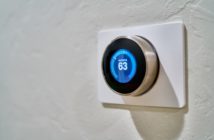Varicose veins are an aesthetic problem that no one wants to have to deal with. There are many myths about varicose veins and their cause. Some sources say that they are hereditary. Others say they are spontaneous. There are also just as many myths about their treatment and whether or not it is effective. It is first important to get a little background information so that you know exactly what you are dealing with.
What are Varicose Veins?
The terms varicose and veins and spider veins are confusing because sometimes people use them interchangeably. These issues are not the same thing. Wikipedia describes the difference between spider veins as smaller, red or purple in color, and flat while varicose veins are bulging, blue, and require stronger treatment than spider veins. Varicose veins are twisted and commonly occur on the legs but can appear anywhere on the body. The veins have valves which allow blood to move properly(forward). When the valves no longer work properly, the blood can flow backwards which enlarges the veins. This causes the twisty, bulging veins that are often seen in vein specialists ad campaigns. Your text to link…
Where and Why They Occur
Varicose veins are most often found in the superficial veins of the legs because of the stress that the legs are under while supporting the weight of a person’s body. This can sometimes cause pain especially if they have been a problem for a long time. This is not usually a serious problem unless a blood clot develops. The CDC website Your text to link… lists varicose veins as a risk factor for blood clots and cautions those who have them to be aware and take precautions when traveling for a long duration of time.
Heredity
Unfortunately, the problem of varicose veins seems to be a genetic one. If your parents have them, you have a pretty good chance of having them also. They are more common for females than for males. Other issues that can aggravate varicose veins are pregnancy, menopause, obesity, prolonged durations of standing, injury to the leg, aging, and straining of the abdominals.
Treatment and Relief
Some treatment options are more aggressive than others. It could be something that you accept and choose to deal with on a conservative level. Some options include elevation of the legs, compression stockings(especially if you will be standing for long periods of time) or medical devices, anti-inflammatory drugs, and topical ointments to help with itching or other symptoms that may occur. There are more aggressive avenues to take. Memphis Vein Center says, “One option that is effective for smaller veins and for those who don’t mind needles is saline injections. The saline irritates the vein and shuts it down. Another option is surgery. Basically, the veins that cause varicose veins aren’t necessary to your body’s circulatory system. This makes it possible to treat them without harming your body.” If the veins are treated while still small, a less invasive laser surgery is possible. It heats up the blood in the vein to the point that it shuts down and shrinks. These results can be pretty amazing. If the veins are bigger and have been around for awhile, the surgery necessary will need to be more invasive. It includes heating the vein from the inside out until it shuts down and shrinks. The down time after surgery can vary, as can the cost.
Sooner is Better
Are varicose veins hereditary? Yes, but that doesn’t mean you have to suffer through your life with them. If you know that they run in your family, be on the look out for the symptoms. The sooner you seek treatment, the less invasive and probably expensive it will be. The results of treatment can be impressive and may give you the confidence you need to wear shorts again.



